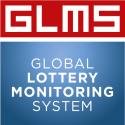The Economic Implications of Lotteries: A Micro and Macro Perspective
![]() USA (June 8, 2023) — You’ve probably seen it before: the lure of a massive lottery jackpot promising a life of luxury and financial freedom. While the odds of winning are astronomically low, millions worldwide continue to buy lottery tickets, hoping for that one lucky break.
USA (June 8, 2023) — You’ve probably seen it before: the lure of a massive lottery jackpot promising a life of luxury and financial freedom. While the odds of winning are astronomically low, millions worldwide continue to buy lottery tickets, hoping for that one lucky break.
But have you ever stopped to consider the economic implications of lotteries, individually and on a larger scale?
In this article, we’ll delve into the micro and macro perspectives of the lottery industry, examining how it affects individual spending habits, governments, and society. From a personal standpoint, we’ll explore the impact of lotteries, including the Massachusetts Lottery, acknowledging that it can be both positive and negative.
Additionally, we encourage readers to stay updated with Massachusetts Lottery results to gain insights into this influential industry’s broader implications and outcomes.
For some, it’s a form of entertainment; for others, it’s a desperate attempt to escape financial strain.
On a macro level, governments rely on lottery revenues to fund public projects and services, but this reliance raises questions about wealth distribution, social mobility, and political influence.
As we explore these topics, we’ll also discuss potential solutions and alternatives to the current lottery system and consider the future of lotteries and their economic impact in our ever-evolving global landscape.
The Lottery Industry: A Global Overview
Now, let’s dive into the captivating world of the lottery industry and discover its global impact on societies and economies alike.
The lottery industry is a massive global business, with total sales reaching over $300 billion in 2019. This includes traditional lotteries, sports betting, and other gambling activities.
It’s a highly regulated industry, with governments often directly involved in the operation or oversight of these games as they generate significant tax revenues and sometimes even fund social programs or initiatives.
The economic implications of the lottery industry can be quite profound, as it creates employment opportunities, generates revenues for governments, and can stimulate economic activity in other industries.
Lottery operators often rely on retailers and other sales channels to sell their products, creating a network of businesses that benefit from the lottery industry.
Furthermore, lottery winnings can multiplier the economy, as winners often spend or invest their newfound wealth in various ways, such as purchasing homes, starting businesses, or supporting charitable causes.
While the lottery industry has undoubtedly created economic benefits, it’s worth noting that lotteries are often criticized for their potential negative social consequences.
Critics argue that lotteries can be exploitative, disproportionately targeting lower-income individuals who may be more susceptible to the allure of a potential windfall.
This brings us to the importance of understanding individual spending habits and behaviors when analyzing the overall economic implications of lotteries from a micro and macro perspective.
Individual spending habits and behaviors
Diving into individual spending habits and behaviors, it’s interesting to see how the ‘get rich quick’ mentality influences people’s choices in lottery participation. This mentality often stems from the belief that winning a large sum of money would solve financial problems and provide a comfortable lifestyle.
The thrill of potentially winning substantial cash prizes drives people to purchase lottery tickets, even if the odds of winning are statistically improbable. In many cases, the excitement and anticipation of the lottery draw can become addictive, leading individuals to spend significant money on tickets regularly.
Analyzing lottery participation across various demographics highlights different groups’ varying spending habits and behaviors. For instance, those with lower incomes may spend a higher proportion of their income on lottery tickets, often hoping to escape their current financial situation.
Additionally, older adults may have a higher propensity to play the lottery due to a higher level of disposable income and more leisure time.
Furthermore, certain cultural and social factors may influence lottery participation, such as the belief in luck or fate, peer influence, and the desire for social mobility.
While lottery spending may provide individuals with temporary excitement and hope, it is essential to consider the potential financial strain and personal consequences of excessive lottery participation.
For some, the financial burden of consistent lottery spending can lead to debt, strained relationships, and reduced overall well-being.
Additionally, the odds of winning large prizes are extremely low, and many people may invest more money into the lottery than they ever gain in winnings.
With these potential consequences in mind, it’s crucial to explore the impact of lotteries on individuals’ financial health and overall life satisfaction in the next section.
Financial Strain and Personal Consequences
You might wonder how lottery participation’s financial strain and personal consequences can affect individuals and their overall well-being, so let’s delve into that topic.
Financial strain can manifest in various ways, such as increased debt, reduced savings, and difficulty meeting basic needs. When individuals spend a significant portion of their income on lottery tickets, they may sacrifice essential expenses like housing, food, and healthcare.
This can lead to a cycle of financial instability, as individuals may feel compelled to continue purchasing lottery tickets in the hopes of winning and alleviating their financial burdens.
The personal consequences of lottery participation can be far-reaching and may include mental health issues, relationship strain, and even addiction. The constant pursuit of a lottery win can lead to anxiety, depression, and hopelessness, particularly when individuals struggle financially.
Additionally, the financial strain caused by excessive lottery spending can create tension and conflict within relationships, as partners may disagree on spending priorities and allocating limited resources.
In some cases, individuals may develop a gambling addiction, which can exacerbate existing financial and personal issues and make it even more challenging to break the cycle of lottery participation.
As we’ve seen, lottery participation’s financial strain and personal consequences can significantly negatively impact individuals and their well-being.
However, it’s also important to consider the broader implications of lotteries, particularly regarding government reliance on lottery revenues.
In the next section, we’ll explore how this reliance can affect public policy and the provision of essential services.
Government Reliance on Lottery Revenues
As you navigate the murky waters of government reliance on lottery revenues, it’s essential to understand its ripple effects on public policy and the provision of crucial services.
On the one hand, lotteries can provide a significant source of income for governments, which can then be allocated to fund various public projects and services. However, this dependence on lottery revenues can also create a precarious financial situation for governments, as they are subject to the whims of consumer spending and economic fluctuations.
This reliance can lead to shortfalls in public funding and result in governments making difficult decisions about where to allocate their limited resources.
Moreover, the dependence on lottery revenues can influence public policy in various ways. For instance, governments may be more likely to promote and expand lottery programs to generate more revenue, which could lead to a proliferation of gambling and its associated social problems.
Additionally, maintaining a steady stream of lottery income may make governments less likely to implement policies that could reduce lottery sales, such as stricter regulations or higher taxes on lottery tickets.
This creates a potential conflict of interest where governments may prioritize the preservation of this revenue stream over the well-being of their citizens.
As you delve deeper into the intricacies of government reliance on lottery revenues, it becomes clear that this funding source can have positive and negative effects on public policy and the provision of services.
While lottery revenues can help fund important projects and services, it is crucial to consider the potential negative consequences of this reliance and the need for governments to diversify their revenue sources.
With this understanding, you’re better equipped to explore how lottery revenues are used to fund public projects and services and the implications this has on the overall economic landscape.
Funding public projects and services
Let’s examine how these lottery revenues fund public projects and services and what that means for you and your community.
When you buy a lottery ticket, a portion of that money goes into a government fund to support various initiatives. These can range from education and healthcare to infrastructure and environmental conservation.
The idea behind this is that by participating in the lottery, you’re not only giving yourself a chance to win big but also contributing to the betterment of society.
Some of the areas in which lottery revenues are utilized include:
- Education: Many states allocate a significant portion of their lottery revenues to support public education, funding K–12 schools, scholarship programs, and even higher education institutions.
- Healthcare: Some states use their lottery funds to provide healthcare services, especially for those less fortunate and unable to afford medical care.
- Infrastructure: Lottery revenues can also be used to support the construction and maintenance of roads, bridges, and public transportation systems, which are essential for the economic development of a community.
- Environmental conservation: In certain states, lottery funds are directed toward preserving and maintaining natural resources, such as state parks, wildlife habitats, and clean water projects.
It’s important to note that while lottery revenues can provide a valuable funding source for public projects and services, they’re not without drawbacks. Relying on lottery funds as a stable source of revenue can be risky, given that these funds are subject to fluctuations in sales and consumer behavior.
Additionally, using lottery revenues to fund essential services may lead some to argue that it promotes an unhealthy reliance on gambling to support public projects.
Nevertheless, lottery revenues contribute to your community’s development and the services you and your neighbors rely on.
As we move on to our next topic, wealth distribution and social mobility, we’ll examine how lotteries can impact individuals and communities.
Wealth distribution and social mobility
Now let’s dive into how wealth distribution and social mobility are affected by lottery participation, offering a unique insight into the potential impacts on your community and personal financial situation.
Lotteries are often criticized for their regressive nature, as they tend to be more popular among lower-income individuals who spend a higher proportion of their income on lottery tickets. This unnecessary expenditure widens the wealth gap, as most lottery revenues are not redistributed to these communities.
Additionally, studies have shown that individuals with lower education and financial literacy levels are more likely to participate in lotteries, further exacerbating wealth disparities.
While it’s true that lottery winners can experience a significant increase in wealth, it’s important to remember that the odds of winning are extremely low. This means that the lottery does not serve as a viable means of social mobility for most participants.
Research has shown that lottery winners are likelier to declare bankruptcy within five years of winning than the general population. This can be attributed to a lack of financial planning and the sudden influx of wealth, leading to poor spending decisions and an inability to manage newfound resources effectively.
Despite these negative implications, some evidence suggests that lottery revenues can positively impact wealth distribution and social mobility at the macro level.
This is primarily because a portion of lottery revenues is often allocated to fund public projects and services, such as education and infrastructure, which can improve the overall quality of life and create opportunities for upward mobility.
However, this potential benefit must be weighed against the regressive nature of lottery participation and the potential for political influence in the allocation of lottery funds.
In the next section, we will explore the role of political influence and decision-making in the context of lotteries and their economic implications.
Political influence and decision-making
It’s crucial to shed light on the tangled web of political influence and decision-making in the lottery sphere, as it directly impacts wealth distribution, social mobility, and community well-being.
The political landscape can magnify the economic implications of lotteries, with lawmakers and policymakers playing a significant role in regulation, promotion, and taxation. In many countries, the lottery industry is heavily regulated by the government and, in some cases, even owned or operated by state entities.
This close relationship between politics and lotteries can create conflicts of interest, as politicians may be inclined to support policies that favor the lottery business, potentially at the expense of broader social and economic goals.
In addition to the role of politicians, special interest groups and lobbyists can also wield significant influence over lottery-related decision-making. These groups often have a vested interest in promoting and protecting the lottery industry, as they stand to benefit financially from its continued success.
For example, lottery operators, gaming technology companies, and even some beneficiaries of lottery-funded programs may actively lobby for policies encouraging lottery growth and expansion.
This can lead to a disproportionate allocation of resources and attention toward the lottery industry, potentially crowding out other important policy issues and initiatives.
It is essential to recognize the potential pitfalls of this tangled relationship between politics and lotteries and develop strategies to mitigate their negative effects. Increased transparency in the decision-making process, strict ethical guidelines for politicians and public officials, and robust regulatory frameworks can help ensure that the lottery industry operates in the best interests of society as a whole.
In the subsequent section, we’ll explore potential solutions and alternatives to the current lottery systems and their impact on the economy and society.
Potential Solutions and Alternatives
How to address these issues and create a more equitable and sustainable lottery system? Let’s dive into some potential solutions and alternatives.
One possible solution is to create a more transparent and accountable lottery system where the allocation of funds is subject to public scrutiny and input.
This could involve publishing detailed financial reports about how lottery revenues are used, holding public hearings to discuss proposed allocations, and creating an independent oversight committee to ensure funds are being spent to align with the public interest.
By making the lottery system more transparent and accountable, it would be possible to ensure that funds are being used in a way that contributes to the public good and reduces the potential for political influence and corruption.
Another potential solution is to restructure how lottery revenues are distributed so that a larger proportion is invested in long-term social and economic development projects rather than being used to fund immediate government spending needs.
This could involve creating a dedicated lottery fund, similar to a sovereign wealth fund, which would invest in education, healthcare, infrastructure, and environmental protection projects.
By directing a larger proportion of lottery revenues towards these long-term investments, it would be possible to create a more equitable and sustainable lottery system that benefits a wider range of individuals and communities.
In addition to these structural changes, it’s also important to consider alternative models for lottery systems that could help mitigate some of the negative economic and social impacts associated with traditional lotteries.
For example, some countries and states have experimented with implementing ‘prize-linked savings’ programs, which combine the excitement and appeal of a lottery with the long-term benefits of saving money.
In these programs, individuals can win cash prizes based on the money they save rather than the amount they spend on lottery tickets. This not only incentivizes saving but also helps to address some of the regressive aspects of traditional lotteries by encouraging wealth accumulation among lower-income individuals.
As we continue to examine the future of lotteries and their economic impact, we must explore these and other innovative alternatives that could help create a more equitable and sustainable lottery system.
The Future of Lotteries and Economic Impact
As we gaze into the crystal ball of lottery systems, let’s consider their evolving impact on society and potential paths toward a more equitable future. The world is changing rapidly, and so is how people participate in and perceive lotteries.
Technological advancements, growing concerns about income inequality, and shifts in public opinion will all play a role in shaping the future of lotteries and their economic impact.
New platforms and digital currencies could make lotteries more accessible and transparent, potentially increasing participation rates and revenue.
As public awareness of income inequality grows, governments may be pressured to address the regressive nature of lotteries and ensure that funds are allocated more equitably.
Changing social norms and values could lead to reevaluating the role lotteries play in society, with some advocating for alternative funding mechanisms or questioning the ethics of state-sponsored gambling.
The future of lotteries may see increased regulation and oversight to ensure that they are conducted fairly and transparently and that the funds generated are used responsibly to benefit society.
As the future of lotteries unfolds, it’s essential to recognize the potential for both positive and negative consequences. To maximize the benefits and minimize potential harm, it’ll be crucial for policymakers, regulators, and industry stakeholders to work together to adapt to these changes and ensure that lotteries continue to serve the public interest.
By addressing issues such as income inequality, technological disruption, and shifting social norms, it’s possible to create a more equitable and sustainable lottery system that can continue to support worthy causes and contribute to economic growth in the years to come.
Conclusion
So, go ahead, grab a lottery ticket, and secure your future!
After all, who needs a stable economy or government accountability when you’ve got that one-in-a-million chance of hitting it big?
Just remember, when you’re sipping champagne on your private yacht, don’t forget to thank the lottery for its invaluable contribution to society and wealth distribution.
But in all seriousness, it’s time to reevaluate the economic implications of lotteries, seek alternatives, and ensure a more sustainable future for all.
Article By: Tycoonstory
SOURCE: Tycoonstory
About Tycoonstory
Tycoonstory is the largest Online Network for Entrepreneurs & Startups. Tycoonstory gives the opportunity to share the challenges of being an entrepreneur and offers a regularly updated resource on entrepreneurship. Tycoonstory explores the creative process and issues around how people, companies, and industries are making it happen.
Tags: lottery industry, Micro and Macro Perspective































